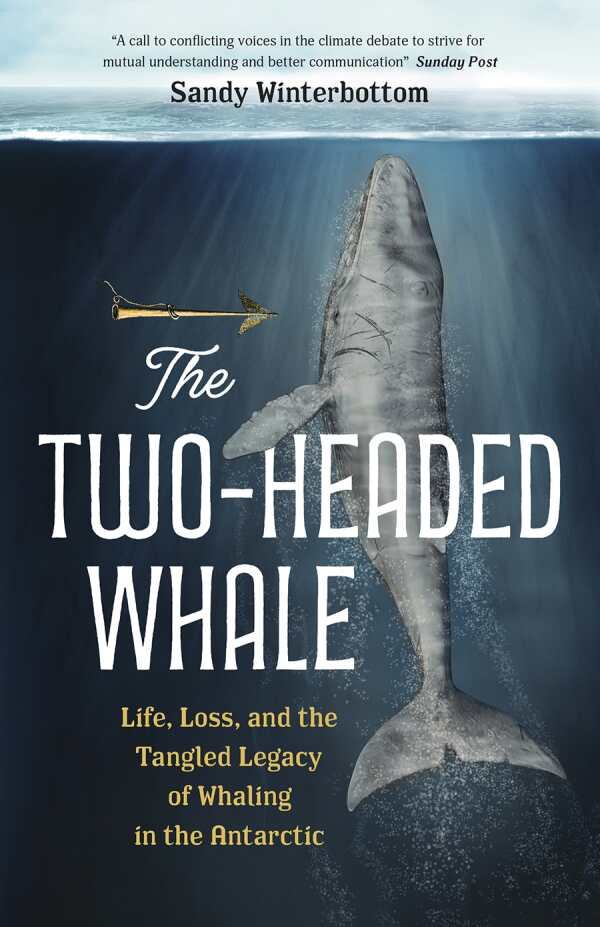The Two-Headed Whale
Life, Loss, and the Tangled Legacy of Whaling in the Antarctic
Sandy Winterbottom’s The Two-Headed Whale intertwines her engrossing 2016 Antarctica travel account with the story of a whaling ship deckhand in the early 1950s.
Winterbottom spent six weeks on a “sleek, beautiful, hand-built—and tiny” ship headed for Antarctica. Sailing south from Uruguay, its crew navigated rough seas; skirted icebergs; observed seabirds; tracked small pods of whales; and visited remote islands and backwater towns. Their route paralleled that of whaling ships during the last century.
At sea, Winterbottom says, a person knows their exact place on the planet—“a tiny speck of nothingness.” Even as she marvels over a photograph of a rare, two-headed whale—“two heads … eye to eye. Two separate beings, one shared body, one shared life” —she notes that more than 325,000 blue whales were killed in the same waters in the twentieth century; roughly 5,000 remain today. Viewing remnants of the whaling industry on South Georgia island, she was disturbed.
Alongside Winterbottom’s story runs the story of an eighteen-year-old Scotsman, Anthony Ford, who worked as a deckhand on a whaling ship—and who died of suicide in 1952. Drawing on ship archives and interviews with Ford’s fellow crewmen and surviving family members, Winterbottom imagines the young man’s motivations and internal conflicts. She envisions Ford’s grief as he looked deep into the eyes of whales, knew them to be remarkable sea creatures, and supposed that he had “seen enough killing for a lifetime.” The juxtaposition of the two stories is moving.
Part memoir, part environmental study, and part history text, The Two-Headed Whale evokes the drama and beauty of life at sea. It also captures the nobility of Earth’s largest mammals and the devastation wrought by the whaling industry.
Reviewed by
Kristen Rabe
Disclosure: This article is not an endorsement, but a review. The publisher of this book provided free copies of the book to have their book reviewed by a professional reviewer. No fee was paid by the publisher for this review. Foreword Reviews only recommends books that we love. Foreword Magazine, Inc. is disclosing this in accordance with the Federal Trade Commission’s 16 CFR, Part 255.

